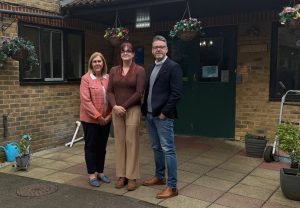Birmingham-born ideas to be implemented by Cushman & Wakefield offices worldwide

A TRIO of property management innovations developed in Birmingham has helped property consultancy Cushman & Wakefield’s local team win an internal ‘best practice’ competition.
The competition – aimed at getting people to think outside box – was organised by Cushman & Wakefield among its global office network.
It attracted 362 entries, resulting in just ten winners – including the three from Birmingham.
The innovations put forward by Cushman & Wakefield in Birmingham were a scheme to organise and manage contractors employed to maintain buildings, the ‘pop-up network’ – short-term events used to promote properties with various activities, from fashion shows to cinemas, in shopping malls and other locations – and a campaign to help smaller occupiers engage with environmental initiatives and save money by going ‘green’.
Phillip Taylor, who heads Cushman & Wakefield’s asset management team in Birmingham, said the scheme for contractors was born out of an industry-wide problem involving the hiring and managing of third parties who are used to provide maintenance services at buildings.
“It’s all about better governance and control of contractors – making sure they are suitably assessed and managed,” he said.
“These days, landlords have an increasing responsibility to ensure their contractors are properly appointed and entirely suitable to undertake the works and services required.”
The ‘pop-up network’, is an idea which Cushman & Wakefield has pioneered. It involves putting on activities in any location where people might congregate, typically an empty shop unit, or a car park, or even just a balcony.
Projects that Cushman & Wakefield has managed so far include a pop-up cinema, a fashion event, an art gallery installation, and niche retail outlets, including a bespoke corsetry maker which opened in Great Western Arcade in Birmingham on a short-term lease.
The third innovation involves helping smaller businesses that occupy buildings to introduce and manage sustainable ‘green’ solutions.
Taylor said this could involve anything, from using more eco-friendly light and improving waste disposal to larger scale projects, such as rainwater harvesting and improvements to mechanical and electrical plant, with the overall aim being to reduce energy costs.
The three Birmingham innovations will now be adopted by Cushman & Wakefield offices around the world, on behalf of their clients.








